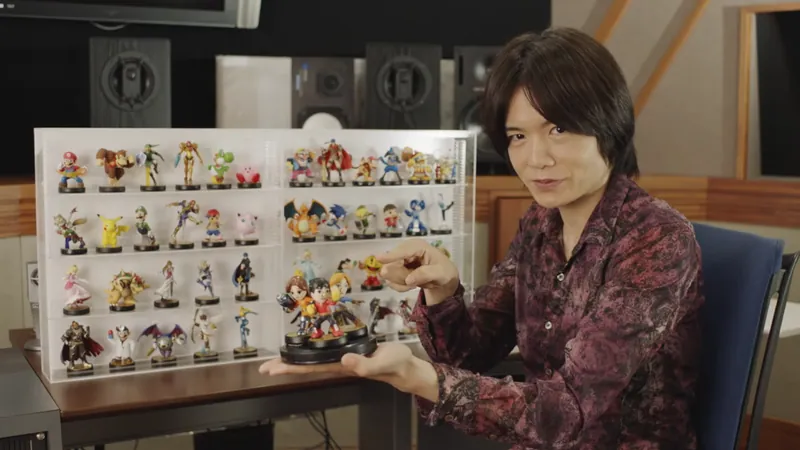
Outrage Erupts as AI Misinterprets Smash Bros. Director's Comments on AI
2025-06-23
Author: Ken Lee
In a dramatic turn of events, famed Super Smash Bros. creator Masahiro Sakurai found himself amidst a whirlwind of controversy following comments about AI in game development. Recently, he announced his return to the gaming scene to work on Kirby Air Riders for the upcoming Switch 2. However, a translation mishap over his remarks sparked significant backlash this past weekend.
The firestorm began when a now-deleted summary of Sakurai's interview with ITmedia Business Online went viral. It inaccurately claimed he suggested that large-scale game development is unsustainable, adding fuel to the fire by stating he believes Generative AI could improve efficiency. Fans and experts criticized the summarization, claiming it painted him as someone embracing AI without reservation.
Translators and bilingual commentators swiftly came to Sakurai’s defense, arguing that the AI-generated translation stripped away the subtleties of his actual sentiments. Thomas James, a localization expert, reported that the comments did not convey an outright endorsement but rather reflected Sakurai’s resignation to the industry's challenges.
Further clarification came from freelance writer Kite Stenbuck, who provided his interpretation of Sakurai’s statements: "I think when we want to make a large-scale game... it’d take so much labor that we’d go into a situation where it’s not sustainable. The one effective solution that comes to my mind would be something like Generative AI…" This suggests a more nuanced view—Sakurai is contemplating long-term industry trends rather than advocating for AI-driven game development.
This incident raises questions about the reliability of machine translation in conveying complex ideas across cultures. James pointed out that nuances often get lost in automated translations, which struggle with the implied meanings steeped in Japanese language and culture. He emphasized the limitations of relying on machines over human translators who understand context.
Moreover, the debate highlights a much larger conversation about AI's role in the gaming industry. While critiques of AI hype are growing in the West, Japan's discourse remains notably behind, plagued by misconceptions and sensationalism around its applications.
As this controversy continues, it underscores the broader issues within Western gaming media, where the loss of fluent language speakers has led to a dangerous trust in machine translations over skilled human translators. The evolving relationship between AI and game development remains a hot-button topic, and Sakurai's comments have merely scratched the surface of a much deeper conversation.
As it stands, the community must navigate these complexities cautiously, for a misinterpretation can lead to backlash that shapes public perception—even of beloved figures like Sakurai.


 Brasil (PT)
Brasil (PT)
 Canada (EN)
Canada (EN)
 Chile (ES)
Chile (ES)
 Česko (CS)
Česko (CS)
 대한민국 (KO)
대한민국 (KO)
 España (ES)
España (ES)
 France (FR)
France (FR)
 Hong Kong (EN)
Hong Kong (EN)
 Italia (IT)
Italia (IT)
 日本 (JA)
日本 (JA)
 Magyarország (HU)
Magyarország (HU)
 Norge (NO)
Norge (NO)
 Polska (PL)
Polska (PL)
 Schweiz (DE)
Schweiz (DE)
 Singapore (EN)
Singapore (EN)
 Sverige (SV)
Sverige (SV)
 Suomi (FI)
Suomi (FI)
 Türkiye (TR)
Türkiye (TR)
 الإمارات العربية المتحدة (AR)
الإمارات العربية المتحدة (AR)